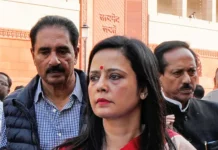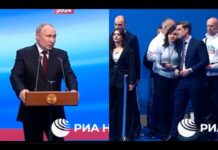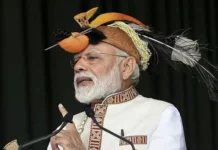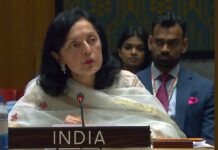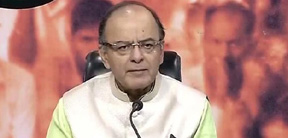 SYDNEY: Promising better returns, Indian Finance Minister Arun Jaitley on Wednesday invited Australia’s sovereign wealth funds and pension funds to invest in India.
SYDNEY: Promising better returns, Indian Finance Minister Arun Jaitley on Wednesday invited Australia’s sovereign wealth funds and pension funds to invest in India.
During a bilateral meeting with Australian Treasurer Scott Morrison here on Wednesday, Jaitley sought investments in India by the Future Fund, Australia’s sovereign wealth fund, as also by the Super Fund, the country’s multi-industry superannuation fund.
Jaitley also called for higher investments by Australian businesses in India, saying they can get better returns on their investments.
He also said that India wants to benefit from the Australian experience in implementing GST, saying India is ready for GST rollout as hoped the new indirect taxation regime will soon become a reality.
During the meeting, Morrison said Australia is keen to further increase its investment in India.
Talking about recent developments in bilateral and strategic cooperation in multiple areas, he emphasized on the common interest of the two countries in promoting policies to sustain economic growth and create jobs for the youth.
The two leaders discussed various global and bilateral economic issues and agreed to continue and enhance the economic engagement and collaboration of the two countries.
The meeting was also attended by the Finance Ministry and RBI officials from the Indian side, as also by the senior officials from Australia Treasury and the Reserve Bank of Australia. Recalling the recent high-level visits by leaders of the two countries, Jaitley and Bishop expressed satisfaction over ongoing cooperation in several areas of bilateral interests.
The two leaders discussed various bilateral and global developments and stressed upon the importance of people-to-people contacts and welcomed the forthcoming ‘Festival of India’ in Australia and growing tourism and cultural exchanges.
Later, Bishop told PTI that the meeting was “productive” and positive, where several bilateral issues were discussed.
At the Make in India conference, Jaitley said that there was a need to expand the manufacturing share to 25 per cent of GDP with a significant population moving out of agri sector.
Jaitley said that now is the time when ‘Make in India’ campaign can translate into actual activities.
The conference was launched in the presence of Australia’s Special Envoy for trade Andrew Robb, Indian High Commissioner Navdeep Suri, CII Director-General Chandrajit Banerjee, CII President Sumit Mazumder and NEW Parliament Secretary for Major Events and Tourism Jonathan O’Dea.
Jaitley said India has got a second chance to transform itself into manufacturing hub with ‘Make in India’ campaign.
The Indian economy is doing well despite global downturns and if the global tailwinds become more supportive, India could perform even better, he said.
“Global investors must seriously look at in terms of investing in India,” Jaitley said, adding that the country has also shown a great appetite for economic reforms.
“The constituency that supports economic reforms in India today are far more bigger than the one which obstructs it.
India becoming an aspirational society has significantly increased,” he said.
Jaitley also cited the size of the market that India offered.
“Any market that occupies 1/6 of the global population, 35-40 per cent of them in middle class. Its purchasing power increasing by the day. Where else will you get a market of this size,” he said, adding that Indian federalism has evolved from being cooperative to competitive.
The minister further assured the investors that tax system in India was also being gradually brought to global standards.
Speaking on the occasion, Australia’s former Trade Minister Andrew Robb said his country has a lot to offer to India in terms of expertise.
“As a country, we are 80 per cent services. We can offer environment, power, design, energy, transport and other services,” Robb said.
Indian High Commissioner Navdeep Suri said the two sides had a strong strategic relationship.–PTI


